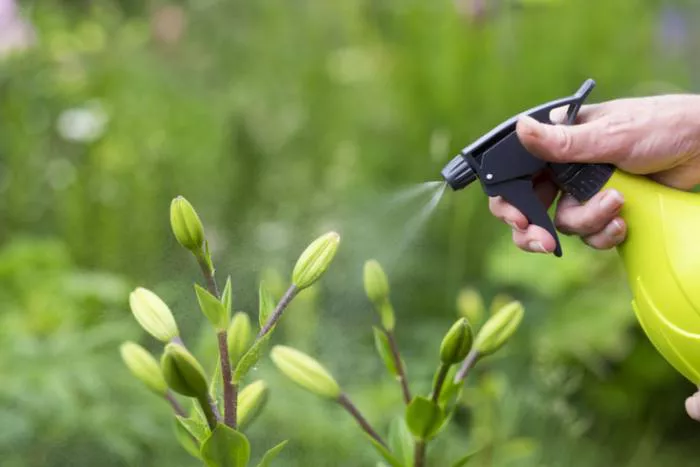A transformative $24.79 million research project is set to reshape pest control practices for Australia’s grain and vegetable growers. This groundbreaking initiative aims to reduce dependency on broad-spectrum insecticides while fostering innovative pest management strategies that support sustainable and productive farming.
A Collaborative Investment for Agricultural Sustainability
The Australian Grains and Horticulture Pest Innovation Program (AGHPIP) represents a landmark partnership between key agricultural stakeholders. The five-year program, backed by $10 million from the Grains Research and Development Corporation (GRDC), also includes significant contributions from Hort Innovation ($5.59 million), the University of Melbourne ($5.75 million), and Cesar Australia ($2.25 million).
This united effort focuses on four critical areas:
- Investigating endosymbionts in pest insects.
- Promoting beneficial insect populations.
- Developing proactive resistance management techniques.
- Communicating and extending research findings to growers.
By advancing science-backed pest management strategies, the initiative aims to address the pressing need for effective and environmentally conscious solutions in Australia’s agricultural sector.
GRDC’s Vision for Industry Resilience
Nigel Hart, Managing Director of GRDC, highlighted the immense toll that pest insects impose on grain production.
“It is challenging to quantify the overall cost of invertebrate pests on the grains industry, but annual losses across the six major Australian grain crops exceed $350 million,” Mr. Hart noted.
While cultural and chemical controls remain essential, Hart emphasized the importance of reducing reliance on insecticides.
“Integrating beneficial insects and innovative pest control technologies will not only enhance crop health and productivity but also contribute to long-term industry resilience and sustainability,” he said.
Horticulture’s Commitment to Proactive Pest Management
The partnership also marks a significant step for the vegetable industry, with Hort Innovation playing a pivotal role in the project’s development.
Brett Fifield, Chief Executive Officer of Hort Innovation, expressed optimism about the initiative’s potential to equip growers with better tools and practices.
“Our vegetable growers consistently prioritize readiness for existing and emerging pest threats,” Mr. Fifield said. “Collaborating with GRDC allows us to address shared challenges effectively and ensure the production of high-quality crops.”
Fifield added that the project builds on a successful earlier partnership between GRDC, the University of Melbourne, and Cesar Australia, which delivered substantial advancements in pest management research.
Cutting-Edge Research to Lead the Way
The AGHPIP will be spearheaded by Professor Ary Hoffmann of the Pest and Environmental Adaptation Research Group (PEARG) at the University of Melbourne. Professor Hoffmann will work in close collaboration with Cesar Australia to lead the research and innovation efforts.
University of Melbourne Dean of Science, Professor Moira O’Bryan, praised the initiative for its long-term impact on the grains industry.
“The University of Melbourne is proud to continue its critical work with GRDC in tackling the complex pest challenges facing Australian agribusinesses,” Professor O’Bryan said. “This investment strengthens our partnership and ensures we can translate world-leading research into practical solutions that enhance productivity and sustainability.”
Goals and Outcomes of the Program
The AGHPIP is designed to deliver tangible benefits to growers by 2029. GRDC Pest Manager Dr. Leigh Nelson outlined the program’s core objectives:
- Developing pest control methods based on endosymbionts, microorganisms living inside insects that can affect their biology.
- Implementing precision resistance management techniques to mitigate the risks of pest resistance to existing insecticides.
- Encouraging the adoption of beneficial insects to support natural pest control.
- Enhancing pest management practices to reduce economic losses and promote environmental sustainability.
“We understand the pressure growers face to future-proof their operations,” Dr. Nelson said. “This investment provides a comprehensive suite of innovative tools and practices to help growers adapt to the evolving pest management landscape.”
A Nationwide Movement for Better Pest Management
The AGHPIP reflects a broader national shift towards integrating sustainable and science-driven practices in agriculture. By prioritizing research, education, and collaboration, the program seeks to empower farmers to adopt proactive measures that benefit both their crops and the environment.
As pest pressures and environmental concerns continue to grow, the initiative underscores the importance of industry-wide collaboration. GRDC, Hort Innovation, and their partners are united in their vision of fostering resilience and sustainability in Australian agriculture, ensuring a future where growers can thrive without compromising environmental integrity.
Related topics:


